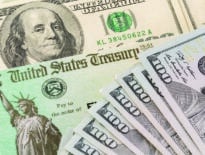
Tom Curry
In a continuation of our June Banker & Tradesman column, U.S. politicians and regulators are signaling an increasingly skeptical and potentially adverse approach to cryptocurrency.
As previously noted, certain international regulators have faced major, and sometimes debilitating, aftershocks from cryptocurrency markets. Iran suspended cryptocurrency-related activities on May 26 of this year due to country-wide blackouts caused by the large amount of energy being used to mine cryptocurrency. Additionally, on June 21, the Chinese government instituted a ban on cryptocurrency transactions for Chinese banks due to security concerns stemming from blockchain trading. In response, major cryptocurrency exchanges ceased accepting trades for Chinese clients.
Cryptocurrency exchanges themselves also face increased scrutiny from international regulators. In late August, the U.K.’s Financial Conduct Authority (FCA) stated it “was not capable of properly supervising Binance.” The Monetary Authority of Singapore (MAS) quickly followed the FCA and placed Binance’s website on its “investor alert list.” Regulators in Europe also issued similar warnings about cryptocurrency trading.

Kate Henry
International standard setting bodies are also taking a similarly wary position with respect to cryptocurrency. On June 10, the Basel Committee on Banking Supervision announced its plan to require banks with exposure to volatile cryptocurrencies to hold higher minimum regulatory capital against its cryptocurrency asset exposure. Although the Basel Committee has acknowledged that the current risk related to cryptocurrency is low, these new requirements signaled a wary approach to regulated financial institutions’ increasing exposure to cryptocurrency related activities.
The United States has been slower to act with respect to cryptocurrency regulation – although several regulators have acknowledged the increased pace at which cryptocurrency is developing, and SEC and OCC officials have even publicly acknowledged their hesitancy to fully embrace the advantages of cryptocurrency due to its risks, there has been little movement to implement regulatory restrictions to the degree implemented by international regulators.

Armand J. Santaniello
The Biden administration may be inclined to take a more proactive stance than the Trump administration to stem some of the investor protection and other risks associated with cryptocurrency. Recent Biden administration actions and communications indicate that the global transition to “crypto-skepticism” is making its way into United States regulatory policy.
Three Key Regulators Skeptical
In remarks made before the Aspen Security Forum on Aug. 3, Gary Gensler, chair of the Securities and Exchange Commission, was critical of cryptocurrency, equating it to the “Wild West.” Gensler stated that cryptocurrency is a “speculative investment” that is used to “skirt our laws with respect to anti-money laundering, sanctions, and tax collection [and can] enable extortion via ransomware.” Gensler also commented on stablecoins, a cryptocurrency that is tied to a fiat currency and is often perceived as safer than other, more speculative cryptocurrencies, stating that stablecoins “may facilitate those seeking to sidestep a host of public policy goals connected to our traditional banking and financial system: anti-money laundering, tax compliance, sanctions and the like. This affects our national security.”
Gensler’s statements are a noticeable shift from the Trump administration’s more favorable approach to cryptocurrency, a shift that can be traced back to at least May 2021 beginning with the interim appointment of Michael Hsu as acting comptroller of the currency. Hsu has “urged caution” when publicly discussing cryptocurrency and has drawn parallels to certain financial engineering innovations and activities that precipitated the 2008 financial crisis. In a Sept,15 speech at the Exchequer Club, Hsu said that one of his priorities was “adapting to digitalization,” believing that a key contributor to the 2008 financial crisis was a lack of coordination amongst the financial regulatory agencies. Hsu, believing that the pre-financial crisis mentality of “putting individual agency interests first” will result in the same problems as before, has “called for regulators to develop a unified fintech strategy.”
In September, the Biden administration nominated Cornell Law School Professor Saule Omarova to become comptroller of the currency. Before her position at Cornell, Omarova served in the George W. Bush administration as an adviser on regulatory policy, and before that began her career in private practice. Omarova is on record as echoing Hsu’s pleas to not let “techno-optimism” distract from the importance of sound oversight. As an academic, Omarova also echoed Hsu’s sentiment regarding cooperation and coordination, writing that fintech is contributing to the growth of the financial system as a whole, and that “macro-level” changes are responded to by regulators on the “micro-level.” If Omarova is confirmed, she would be the first permanent comptroller during the Biden administration and would solidify the administration’s highly skeptical stance on cryptocurrency begun by acting Comptroller Hsu in stark contrast to the Trump administration’s pro-crypto stance.
As some developing countries continue to test the waters by embracing cryptocurrency, global financial regulators and the Biden administration appear poised to insist that the U.S. and global financial markets and investors are adequately protected from some of the pitfalls associated with cryptocurrency investing.
Thomas J. Curry is a partner in Nutter’s corporate and transactions department. Kate Henry and Armand J. Santaniello are associates in Nutter’s corporate and transactions department. Curry is former U.S. comptroller of the currency and all are members of the firm’s banking and financial services group.




 |
| 

